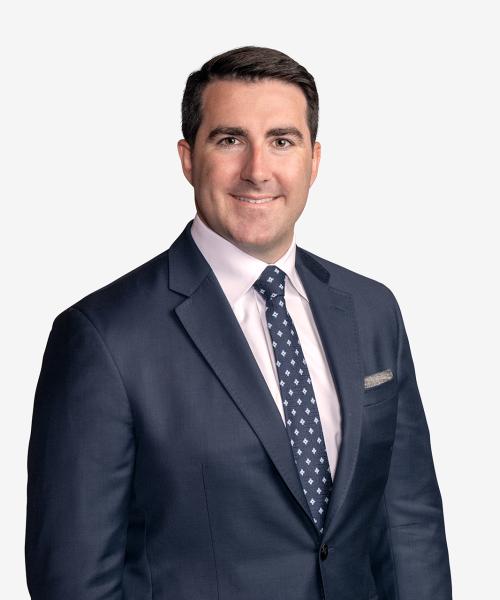Friday Enforcement Wrap: Deputy Associate Attorney General Delivers Remarks at Annual False Claims Act Conference
DOJ News
Deputy Associate Attorney General Delivers Remarks at Annual False Claims Act Conference
On January 28, 2019, Deputy Associate Attorney General Stephen Cox spoke at the 2019 Advanced Forum on False Claims and Qui Tam Enforcement. Mr. Cox reinforced the Administration’s commitment to enforcing the False Claims Act to fight fraud on taxpayers, highlighting the Government’s $2.8 billion in recoveries in the 2018 fiscal year, including large settlements with United Therapeutics Corporation and Pfizer, among others. Mr. Cox also referenced the January 2018 internal memo authored by the Director of DOJ’s Civil Fraud Section, Michael Granston, now referred to as the Granston Memo, which offers guidelines for determining when the government should exercise its statutory authority to dismiss qui tam cases: “Part of the reasoning behind the memo is that when qui tam cases are non-meritorious, abusive, or contrary to the interests of justice, they impose unnecessary costs on the Department, on the judiciary, and on the defendants. Bad cases that result in bad case law inhibit our ability to enforce the False Claims Act in good and meritorious cases.” He explained that these cases also consume the government’s resources, as the government continues to monitor whistleblower cases even when it declines to intervene. Mr. Cox signaled that, while DOJ’s Granston authority has not been used often, the government “will use this tool more consistently to preserve our resources for cases that are in the United States’ interests.”
Read the full text of Mr. Cox’s remarks here.
Inform Diagnostics to Pay $63.5 Million for Illegal Inducements to Physicians
Pathology laboratory Inform Diagnostics agreed to pay $63.5 million to resolve three qui tam lawsuits alleging that the company provided subsidies for electronic health records (EHR) systems and free technology consulting services to physicians in order to induce referrals, in violation of the Stark Law and Anti-Kickback Statute.
Read the DOJ press release here.
Three South Texas Doctors Head to Prison for Medicare Fraud
Three physicians from Houston, Texas were sentenced to thirty, twenty-five, and three years in prison, respectively (the third having engaged in a much smaller-scale scheme), for their participation in two separate schemes to defraud Medicare by falsely certifying information about patients’ medical condition and need for medical services. The defendants were also ordered to pay substantial sums in restitution, collectively approaching $50 million.
Read the Jan 28 press release here.
Read the Jan 29 press release here.
Miami Home Health Operator Sentenced to 51 Months in Prison for Medicare Fraud
The operator of several Miami home health agencies was sentenced to 51 months in prison for defrauding Medicare of $4.66 million. The defendant’s guilty plea admitted to paying kickbacks to patient recruiters to induce Medicare patient referrals, despite that the patients did not qualify for home health services, and she will be ordered to pay $4.66 million in restitution.
Read the DOJ press release here.
Avanti Hospitals Settles Anti-Kickback and Stark Law Violations for $8.1 Million
Avanti Hospitals, LLC and six of its owners will pay the government $8.1 million in connection with allegations that Avanti paid or caused its subsidiary, Memorial Hospital of Gardena (“Gardena”), to pay a medical director in excess of the fair market value of his services in order to encourage referrals to Gardena. Avanti and Gardena also entered into a corporate integrity agreement with the Department of Health and Human Services Office of Inspector General.
Read the DOJ press releasehere.
OIG News
Advisory Opinion Allows Use of Loaner Smartphone to Track Medical Data
The Department of Health and Human Services Office of Inspector General (“OIG”) issued an advisory opinion, No. 19-02, opining that the temporary provision of a limited-use smartphone to needy beneficiaries, in order to receive adherence data from a sensor in prescribed antipsychotic medication, would not be grounds for civil monetary penalties. The drug at issue contains an ingestible sensor to track medication adherence, which is a problem in the patient populations with the disorder that the drug is designed to treat. The data captured by the sensor can be accessed through a smartphone application that allows the patient to add certain additional information, and the compiled data is saved on a server that the patient’s health care provider can access. The Proposed Arrangement contemplated temporarily providing the patient with an older iPhone or Android that could be used only for the app and domestic telephone calls, with all other functionality disabled.
OIG concluded that the Proposed Arrangement would meet the “Promotes Access to Care Exception” to the Beneficiary Inducements civil monetary penalty because it would (i) “improve a qualifying beneficiary’s ability to access the full scope of benefits” of the drug; (ii) be “unlikely to interfere with clinical decision making” because patients who already have a smartphone that could run the app, and patients who exceed the financial-need criteria, would not be eligible for the phone; and (iii) not increase costs to Federal health care programs because “this added functionality, and not the fact that a limited-use smartphone would be loaned to certain low-income patients who do not already have a compatible device, likely would be the determining factor prescribers consider when deciding whether to order the [drug].” OIG further concluded that the Anti-Kickback Statute likely would not be implicated because the Proposed Arrangement would not be advertised to patients, although it could constitute improper remuneration under the Anti-Kickback statute if undertaken to induce referrals.
The Advisory Opinion can be accessed here.
Litigation News
Ev3 Pleads Guilty and Pays $18M Fine for FCA Liability
Ev3’s general counsel entered a guilty plea on behalf of the company on January 25, 2018, to a misdemeanor count of introducing adulterated medical devices in interstate commerce. Ev3 admitted to marketing Onyx, a devise used for patients undergoing surgery for a rare brain disorder, for uses other than those approved by the U.S. Food and Drug Administration, which had warned the company about safety concerns when the device was used outside the brain. Ev3 will pay close to $18 million in forfeiture and criminal fines. The case is United States v. ev3 Inc., case number 1:18-cr-10461, in the U.S. District Court for the District of Massachusetts.
Barclays to Pay $27 Million in Securities Fraud Class Action
A four year-long class action lawsuit brought by Barclays investors culminated in a $27 million settlement agreement that was submitted to the federal district court for preliminary approval. The suit alleged that Barclays misled investors about the transparency and safety of its off-exchange trading pool, and hid or minimized its problematic practices in filings with the Securities and Exchange Commission. The motion for preliminary approval of the settlement was filed unopposed. The case is Strougo v. Barclays PLC, case number 1:14-cv-05797, in the U.S. District Court for the Southern District of New York.
Valeant Executive to Pay $11.8M Restitution for Kickback Scheme
A federal judge ordered a former executive of Valeant Pharmaceuticals International, Inc. (“Valeant”) to pay $11.8 million to the company, as restitution for a $9.7 million bribe the executive received from the head of a mail-order pharmacy. A jury had found both individuals guilty of wire fraud and conspiracy in May, based on allegations that the executive induced Valeant to purchase a mail-order pharmacy in exchange for a $9.7 million kickback from the pharmacy head, which caused Valeant to overpay for the acquisition by $8 million. The restitution award represents the amount Valeant overpaid, the extra 0.5% discount on Valeant products that the defendants facilitated, 20% of the executive’s compensation during the scheme, and Valeant’s legal fees. The case is U.S. v. Tanner, case number 1:17-cr-00061, in the U.S. District Court for the Southern District of New York.
Dialysis Center to Pay $3.2M Settlement for Violation of the Anti-Kickback Statute
Dialysis center WellBound of Memphis agreed to pay $3.24 million to the Government to settle allegations that, from 2016 to 2018, the company submitted false claims to Medicare, Tricare, and Tenncare for home dialysis patients by paying illegal kickbacks to physicians to induce referrals. The lawsuit had alleged that WellBound induced nephrologists to refer patients by permitting only those physicians with a high patient load to invest in the clinic at lower rates while excluding more academic physicians with fewer patients from buying into the clinic—a “pay-for-referral” scheme that violates the Anti-Kickback Statute. The case is United States of America ex rel. Quarles v. Satellite Healthcare Inc., case number 2:16-cv-02733, in the U.S. District Court for the Western District of Tennessee.
Aberon Capital Management Principal Charged in Hedge Fund Scam
A principal of Aberon Capital Management was arrested for an alleged four-year scheme to falsify records and lie to investors of his Cayman Island hedge fund, defrauding them of approximately $20 million. The defendant has been charged with conspiracy, wire fraud, securities fraud and obstruction. Prior to his arrest, the defendant had filed a civil suit against his 50% co-owner alleging “nefarious and illegal” conduct, which resulted in a cease-and-desist order against his co-owner by the SEC. Bail has been set for the defendant at $300,000. The case is United States v. Jain, case number 19-cr-59, in the U.S. District Court for the Southern District of New York.
Contacts
- Related Industries
- Related Practices
-
Read Time
9Minutes





